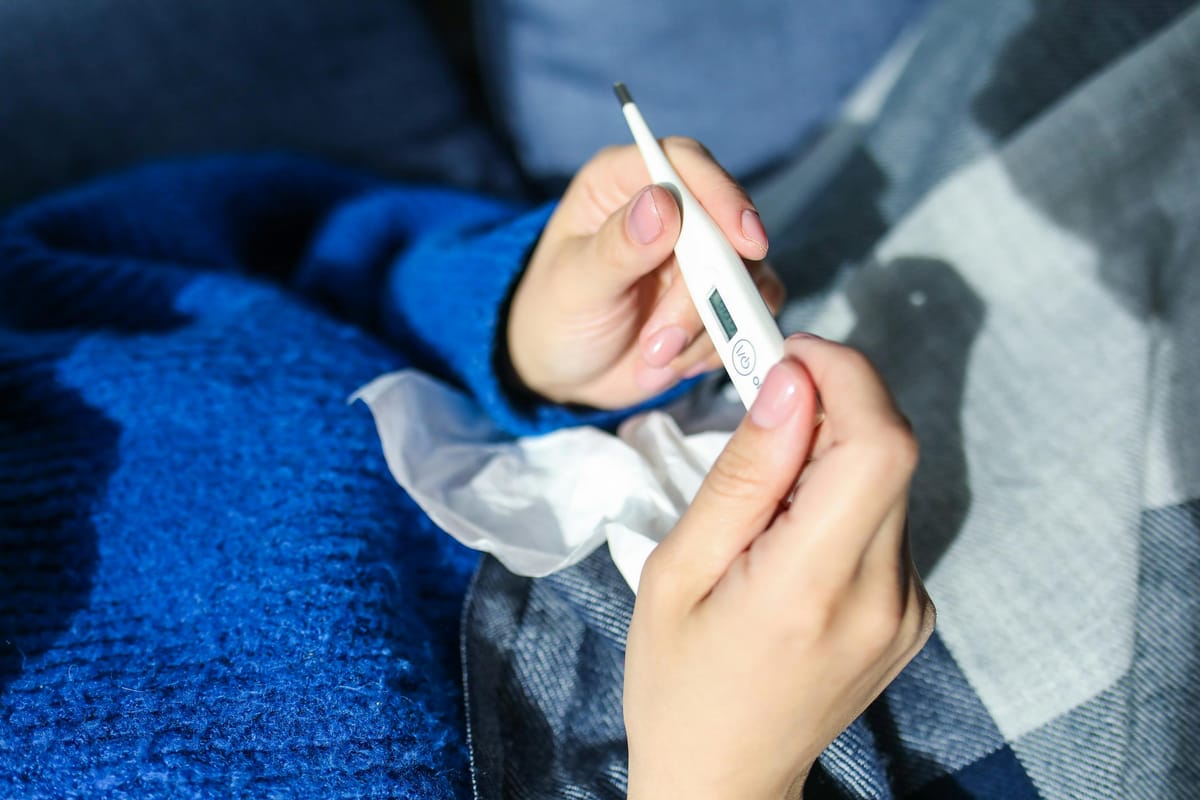Why sick me is also a sad me

Hi friends, you may have noticed that you’re receiving your weekly dose of Gumption a bit later than usual. Unfortunately, I’ve been down for the count with a fever and some sort of virus for the last few days. If you know me, you know that slowing down and convalescing is not one of my strengths. Sometimes, I think the universe gave me a shoddy immune system just to ensure that I have to be still from time to time.
Accepting the ennui that comes with being sick and needing to quite literally just lie in the bed and rest has always been the hardest part about recuperating for me. Simply put, sick Brit gets sad! I mope about falling behind on my (self-assigned) responsibilities or being unable to uphold engagements with friends that I scheduled previously. In the back of my mind, I’ve always wondered if there is something biological happening that makes me feel like the world is closing in when I just happen to be fighting an infection, and this time around, I found the willpower to Google it. And wow, what an eye-opener!
It turns out my hypothesis was spot on. I came across this article in Self, and the headline nearly made me laugh out loud; it felt so accurate. As the author explains:
“There’s a scientific reason why being sick makes me weepy and whiny: Mood changes are a symptom of a syndrome known as 'sickness behaviors,' which experts define as a set of behavioral changes that can occur during infections like COVID, the flu, and the common cold. Getting sick can diminish your mood; make you feel sluggish; and even impair your memory, attention, and brain performance. Sickness behaviors can cause you to not want to be around other people and make it difficult to sleep and eat. Aside from the whole coughing-sneezing-sniffling-puking deal, it’s one of the main reasons why getting sick is such a drag.”
Scientifically speaking, pathogen exposure triggers the release of cytokines, which, while essential for immune response and healing, induce systemic inflammation that leads to a range of unpleasant symptoms like fever, aches, mood changes, and cognitive difficulties. This inflammatory process impacts the brain's hippocampus, too, and can manifest as sickness behaviors like fatigue, emotional instability, and decreased motivation—mimicking depression symptoms. These behaviors, though uncomfortable, serve a purpose by conserving energy for recovery.
In other words, our sick bodies make us feel sad in hopes that we will be still and spend more of our energy on getting better. It’s honestly so rude, but I can’t say it isn’t effective!
Anyways, it looks as though I’ve got one more lazy day ahead of me before I get back to feeling like typical Brit, so I hope you’ll forgive the shorter-than-usual newsletter. I’m going to go binge the latest season of Love on the Spectrum and nap beside one of my cats for most of the day because my body is telling me that’s my job for right now, so I might as well lean in.
P.S. For the folks who are well and able, make sure to find out where your local Hands Off! Rally is happening this weekend and join in.
